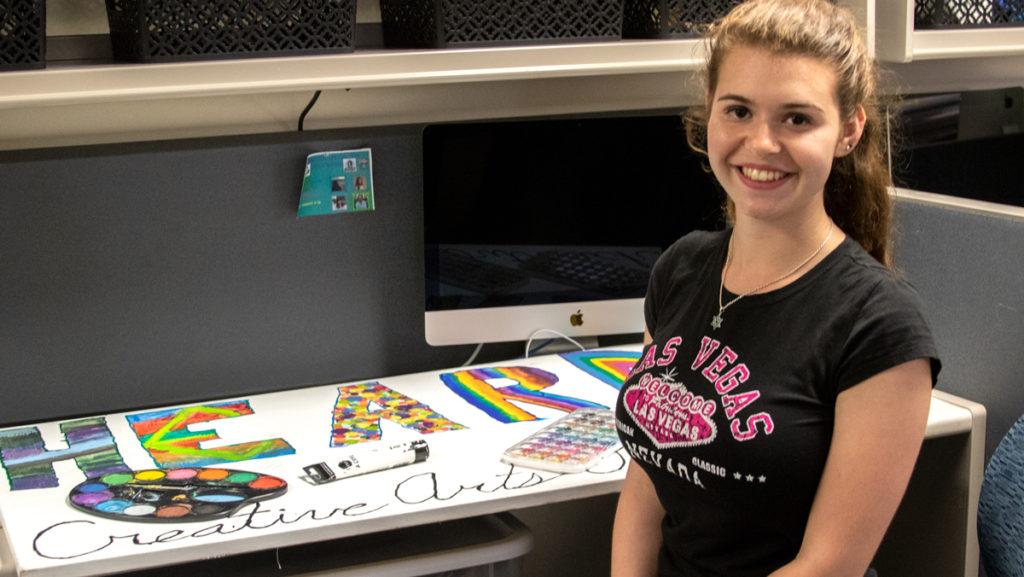Incarcerated individuals are typically stereotyped as dangerous, ‘bad,’ or people who deserve to be punished for their actions, not rehabilitated. When I think of our work with the MacCormick Secure Center, I think of kids and young men. I think of learning circus acts together, writing poetry, painting, creating murals, dancing, beatboxing, talking and getting to know one another. I think of our conversations and connections made typically through music and sports.
I am regularly asked questions such as “Is it safe to work in a prison? Are you scared? Is it dangerous? Do you feel threatened?” These types of questions are something our organization, HEARD, works to dismantle. HEARD is an on-campus organization, which stands for Human Expression Through Creative Arts: a Reciprocal Development Program, in which every weekend, our volunteers travel to the MacCormick Secure Center, a maximum security prison, to bring creative arts programming to residents ages 14 to 20.
According to PrisonPolicy, 1 in 5 individuals are in jail for a drug offense (possession, trafficking, or other non-violent drug offenses). Almost all convictions are the result of plea bargains. These individuals therefore plead guilty to a lesser offense, perhaps of a different category even, such as one that they may not have actually committed. In terms of the juvenile justice system, PrisonPolicy says that “1 in 10 are held in an adult jail or prison, and most of the others are held in juvenile facilities, which look and operate similarly to prisons and jails.” Additionally, individuals of color are significantly overrepresented in the U.S. prison system. Definitely check out their website for interesting information and infographics.
HEARD is unique, in that it is both an on-campus- and off-campus-based organization. We work to connect the community through relevant issues and topics relating to the U.S. prison system. With the creation of the education chair on HEARD’s executive board, we now plan documentary screenings and conversations, art displays, and soon, guest speakers and fundraisers on campus. We have engaged hundreds of individuals in our community, while also raising awareness on topics such as the recidivism rate of recently released and formerly incarcerated individuals.
My favorite outreach was when the Ithaca College Circus Club joined us for a Saturday. Circus Club members spent hours teaching us (both residents and volunteers) how to use Chinese yo-yos, how to juggle and so much more. While a challenge for sure, it was a unique bonding experience. Volunteers in HEARD also provide residents with opportunities to learn new skills and discover interests, while forming connections and learning about themselves. Our organization is based on reciprocal development. Therefore, although we bring the programming into the prison and have many privileges that the residents do not, we try and level the ‘playing field,’ so to speak. For example, activities that are new to both the volunteers and residents allow both of us to simultaneously learn and connect in a unique way.
Volunteers in HEARD commit a substantial amount of their time to making sure this work can happen. HEARD was created not as a way to “save people” or make volunteers feel good about themselves, but rather to connect with a group of people who are often subjects of discrimination, excessive sentencing and stereotyping.
The truth is that we will likely never know what the residents were convicted for, yet we will also never know or understand the circumstances each individual comes from. Each resident deserves to be seen as a human and treated with respect and dignity. This is exactly what we do as we learn, experience and connect together through creative arts programming on Saturdays.














